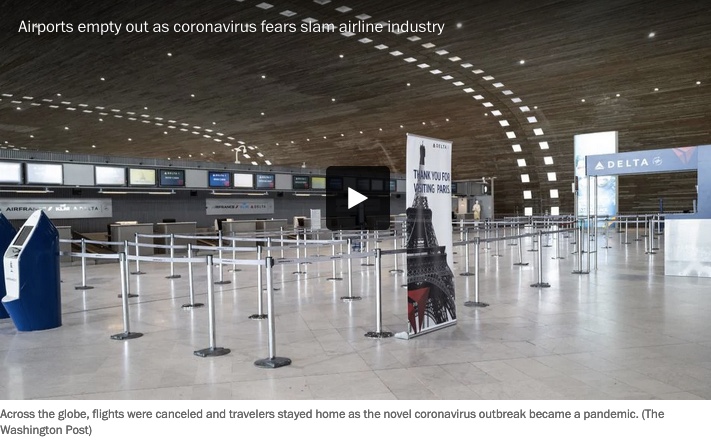The United States is suffering the most abrupt and widespread cessation of economic activity in its history, hurtling toward a recession that could mean lost jobs, income and wealth for millions of Americans.
Across the country, consumer spending — which supports 70 percent of the economy — is grinding to a halt as fears of the escalating coronavirus pandemic keep people from stores, restaurants, movie theaters and workplaces.
The rapid national shutdown already has caused layoffs and reverberated on Wall Street, driving stocks into their first bear market in 11 years. Amid panic selling, unusual strains have appeared in less visible market niches that are critical to the ability of businesses to operate normally.
For millions of workers, consumers and investors, the economy’s sudden stop comes as memories of the 2008 global financial crisis remain fresh. Less than 12 years ago, the economy sank into a painful recession after risky Wall Street investments tied to real estate went sour. The number of jobless workers more than doubled in the aftermath while the stock market lost more than half its value.




